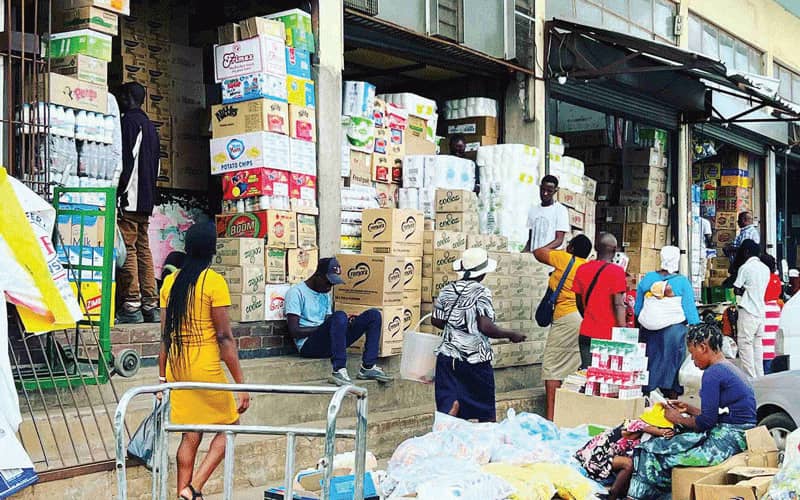Own Correspondent
The proliferation of informal shops, or “tuck shops,” in Harare, Zimbabwe’s capital, has created employment opportunities but also presents a complex challenge for the government. These small shops don’t pay taxes, pushing out big retailers and wholesalers, and undermining efforts to formalize the economy.
Economist Farai Mutambanengwe notes,
“The moment you start getting informal businesses taking over the economy, it reduces the quality of your CBD, the value of properties, and results in tax evasion, informal business channels, and dollarization of the economy. All these things are negative for the economy.”
“Why should we pay taxes? Why? Shaaz, this government caused all this. We are on the streets because of Zanu-PF, so why should we pay taxes?”
A vendor fumed as he was asked about paying taxes. He was selling from a fully stocked 1 toner truck on the roadside. He refused with his name.
Another who called herself Amai Chari had this to say,
“Mwanangu, varikudya vachiguta kumusoro ikoko. Mari yavarikuba yakavawandira, woda tibhadhare matax zvekare kuti vabe futi?”
my child the guys up there have enough money already, as you can see they are femished. The money they steal is enough, you want me to pay taxes so that they steal more
What is more worrying is that these informal traders and tuckshop owners sell their wares right infront of formalized supermarkets and shops.
Most affected are retail shop who sell clothes, they are competing with Chinese who produce cheap quality goods ad well as smuggled second hand clothes sellers.
Minister of Publicity, Information, and Broadcasting Services, Dr. Jenfan Muswere, expresses concern about illegal imported goods sold in tuck shops, saying,
“There’s a proliferation of smuggled and counterfeit goods unfairly competing with local products, as they’re not subject to taxation and import duties.”
As the number of informal tuck shops rises, tax evasion and regulation avoidance pose a significant challenge for policymakers. The government is struggling to address this issue, particularly as the ongoing drought impacts Zimbabwe’s economy, with a forecasted 2024 budget deficit of 1.3% of GDP and projected economic growth of 2%, down from 3.5% in November.
Zim GBC News © 2024


